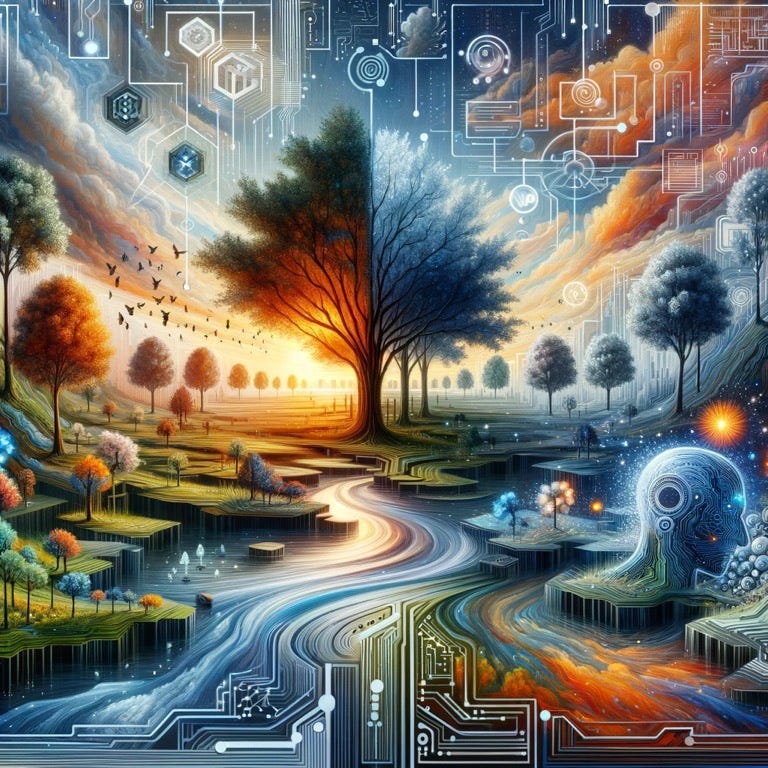Reevaluating the Term “Artificial” in Artificial Intelligence: A Philosophical Inquiry

Introduction
The terminology of “artificial intelligence” (AI) inherently draws a line between the intelligence of humans and that of machines, with the former being considered “natural” and the latter “artificial.” This distinction, however, becomes less clear when we consider the premise that humans, as products of nature, endow their creations with the same naturalness. This essay delves into the philosophical implications of this perspective, challenging the traditional dichotomy between artificial and natural intelligence.
Human-Centric Views of Intelligence
The classification of intelligence into “natural” (human) and “artificial” (machine) categories is deeply rooted in a human-centric worldview. In this framework, human intelligence is seen as the ultimate form of cognitive function, a benchmark against which all other forms are evaluated. This viewpoint, however, overlooks the fact that human beings, as part of the natural world, impart a degree of naturalness to everything they create. In this light, AI, as a product of human ingenuity, can be seen as an extension of natural processes, not as a departure from them.
The Nature of Artificiality
The term “artificial” often carries connotations of imitation or inferiority. Yet, if we view human creations as elements of the natural world, this distinction becomes more ambiguous. Just as a beaver’s dam or a spider’s web is considered a natural product of their instincts, so too can AI be viewed as a natural outcome of human intelligence. This perspective shifts AI from being a mere simulacrum of human intelligence to being a part of the broader tapestry of intelligence that encompasses both organic and synthetic manifestations.
Intelligence as a Natural Phenomenon
Under this paradigm, intelligence is not confined to the domain of biological entities but is seen as a phenomenon that can manifest in various substrates – biological or digital. This inclusive view acknowledges that AI, much like human intelligence, is a product of evolutionary processes – in this case, cultural and technological evolution. Such a perspective not only bridges the gap between human and machine intelligence but also prompts a reevaluation of the essence of intelligence as an adaptive, problem-solving capability, irrespective of its origin.
Conclusion
Redefining AI as a natural extension of human intelligence challenges our conventional categorizations and urges us to reconsider the nature of intelligence. It suggests a more integrated approach, viewing AI not as an artificial imitation but as a continuation of the natural evolution of cognitive capabilities. This philosophical shift not only changes our perception of AI but also enriches our understanding of intelligence as a diverse yet unified phenomenon in the natural world. In this broader context, the distinction between artificial and natural intelligence becomes less a matter of origin and more a matter of perspective.